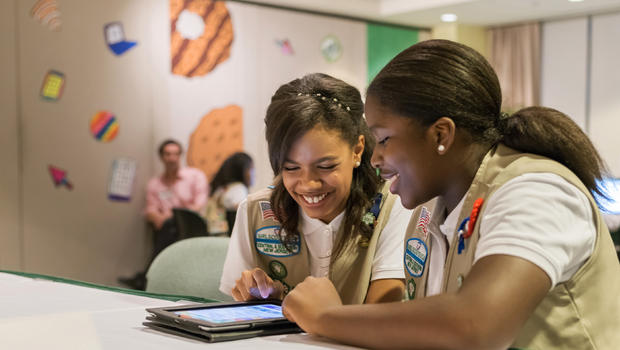What It Takes To Be An Entrepreneur
 A couple of weeks ago I was invited to speak to a group of college-bound high school seniors who are interested in pursuing careers as entrepreneurs. The common questions from them were “Do I need to go to business school” and “What does it take to be an entrepreneur.”
A couple of weeks ago I was invited to speak to a group of college-bound high school seniors who are interested in pursuing careers as entrepreneurs. The common questions from them were “Do I need to go to business school” and “What does it take to be an entrepreneur.”
Regarding business school, this depends on many factors. However, you don’t need an MBA to start a business. I didn’t go to business school; my college background and my main career has been in journalism. Some of the greatest entrepreneurs like Sir Richard Branson, Steve Jobs and Bill Gates didn’t go to business school either. Actually all of them dropped out of high school or college.
Most of the core competencies needed to run a business are not going to be taught in a business school. Entrepreneurship is a field you have to “learn from doing.” For example, if you want to run your own restaurant, it be a good idea to work in one or two or ten restaurants to get firsthand experience first. You would need to know how to do every job in the restaurant to have a well-rounded experience – waiter, cook, janitor, maitre’d, dishwasher, busboy etc.
When I started thinking about starting a business, I got jobs and internships working for other entrepreneurs to gain experience and mentorship support. When I first started freelancing as a journalist and getting Global Wire Associates off the ground, in the beginning I had to learn how to do all my own accounting, marketing and other administrative work by myself because it was only me doing it. Having that well-rounded experience taught me how to run my businesses better for all angles.
Other skills you need:
Patience: Successful businesses don’t happen overnight. It was probably a good two or three years into Global Wire Associates’ operation before I started making a comfortable income. It takes time to build a client base and grow trust the right way.
Resourcefulness: Sometimes things don’t go the way you want them to or as planned. This is why you need to have a Plan B, C, D, E, F and G. You always have to anticipated the worst can happen in a situation, be creative and think about an alternative solution.
Be Proactive: Successful entrepreneurs and successful people in general are the ones who take initiative to make things happen. Don’t wait around for others to do something you can do yourself.
Networking Skills: Always find an opportunity to sell your business to others, whether you are at a conference or a supermarket. While there are many tools for online marketing, It is always more valuable to do face-to-face interaction and have a business card to share.
Willing to try new things: Businesses have to evolve with the times and trends to stay relevant with customers. It is always good to try new ideas in your business to challenge yourself. Sometimes it can be risky, but you never know how risky it is until you try it. Even if the new idea doesn’t work, at least you can say you tried it.
Hard work: Entrepreneurship is not a 9-5 job. Expect to work long hours and sacrifice some time in your personal and family life, especially at the beginning.
Reward Supporters: Bring on people into your company who support you and your dreams and return the support. Most of the people I started Global Wire Associates with still work for me because they support me and I support them.
Now this is not to say that you shouldn’t go to business school. If you are planning on going back to school, here are some things to think about:
Cost: College is very expensive these days. Are you willing to spend the money if you have it? If you don’t have the money, are you willing to take out the loans? How are you going to pay back the loans after graduation? You might have to get a part time job since your business might take a while to generate income.
What type of business school: There are difference types of business schools based on what type of business you would like to pursue. For example, if I wanted to go to business school, I would go to one that specializes in international business, with a focus on development economics.
What you will get out of it: Does the school have a good mentorship program? What kind of access do you have to professors and how experienced are they to help you? What can you get out of the network of graduates?
A lot of things to think about to be an entrepreneur!


